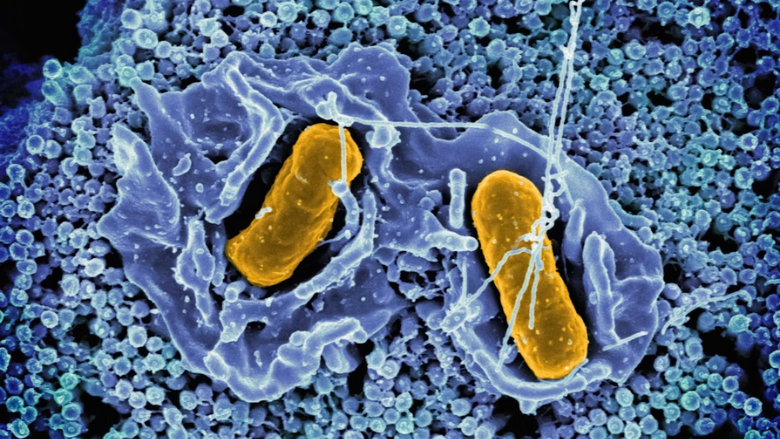Researchers at the University of Maryland School of Medicine’s Center for Vaccine Development and Global Health have completed a successful Phase 1 clinical trial of a new vaccine targeting both typhoid fever and non-typhoidal Salmonella infections, which are responsible for significant illness and death globally.
The investigational Trivalent Salmonella Conjugate Vaccine (TSCV) is designed using sugar molecules taken from Salmonella Typhi bacteria, which causes typhoid fever, as well as from two common serotypes of invasive non-typhoidal Salmonella enterica, which are among the leading causes of foodborne illness. The sugar molecules are linked to proteins that enhance the body’s immune recognition.
Importantly for food safety and domestic public health, the S. enterica serotypes targeted by TSCV are frequently implicated in U.S. outbreaks linked to contaminated poultry, eggs, and produce. The U.S. Centers for Disease Control and Prevention (CDC) estimates that Salmonella causes 1.35 million infections and more than 26,000 hospitalizations annually in the country.
Regarding global public health, a single vaccine that protects against both typhoid fever and S. enterica infection could be particularly beneficial for children in sub-Saharan Africa. In 2017 alone, sub-Saharan Africa saw over 420,000 cases of salmonellosis and 66,000 deaths, primarily among children. Typhoid fever caused an additional 650,000 cases and nearly 9,000 deaths in the region.
In the randomized, placebo-controlled trial, 22 healthy adults either received a low (6.25 microgram) or high (12.5 microgram) dose of TSCV, or a placebo. The vaccine was well-tolerated, with only mild injection site discomfort reported. All vaccinated participants developed strong immune responses to the three targeted Salmonella strains, while placebo recipients did not.
Some trial participants showed pre-existing Salmonella antibodies, suggesting prior exposure through foodborne sources, which may enhance vaccine-induced immunity.
The vaccine also activated a robust immune response involving white blood cells that help clear infections—an effect not previously observed with one of the vaccine’s protein components. These findings suggest potential for both localized and systemic protection against Salmonella.
Looking for quick answers on security topics?
Try Ask FSM, our smart site search tool.
Developed in collaboration with Bharat Biotech International Limited, TSCV builds on the World Health Organization (WHO) -prequalified Typbar TCV platform. Researchers plan to advance to further trials, including studies in young children—the population most vulnerable to typhoid and non-typhoidal S. enterica infections.
The results of the trial were published in Nature Medicine. The study’s first and corresponding author is Wilbur Chen, M.D., M.S., Professor of Medicine at the University of Maryland School of Medicine and Chief of the Adult Clinical Studies section within the Center for Vaccine Development.

